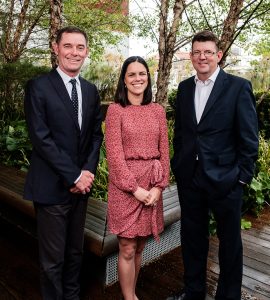The ZAMASA Foundation directs its financial support to targeted immunology research aimed at improving outcomes and quality of life for patients diagnosed with multiple myeloma. While not exhaustive, research areas of current interest include:
Further information will be uploaded onto the website.
In early 2019 working closely with the St Vincent’s Curran Foundation, the ZAMASA Foundation established the ZAMASA Myeloma Fellowship to focus on Immunotherapy Research and associated clinical aspects. The position is held within the new Cellular Therapies Unit of St Vincent’s Hospital’s Haematology and Bone Marrow Transplant Department. In October 2019 Dr Georgia McCaughan was appointed the ZAMASA Myeloma Fellow. Working under the supervision of Associate Professor John Moore, Georgia is in the process of setting up a number of clinical and laboratory research projects within the Cellular Therapies Unit of St Vincent’s Haematology and Bone Marrow Transplant Department. She will be collaborating with Professor Peter Croucher and A/Professor Tri Phan at the Garvan Institute in establishing a method to detect minimal residual disease in myeloma patients. Minimal residual disease can be used to provide information to patients about small number of myeloma cells in their marrow. This may, in the future, help to guide therapy. In addition, it is hoped that this testing platform will also be able to provide further information on the mechanisms and characteristics of myeloma cell dormancy, a specific area of interest of Professor Peter Croucher and A/Professor Tri Phan. Georgia will also be involved in establishing a specialised Myeloma Clinic at St Vincent’s and she will focus on increasing patient access to clinical trials, in particular immunotherapy and novel agents in the treatment of myeloma bone disease.

L to R: Associate Professor John Moore, Dr Georgia McCaughan and Greg Arandt.
In Australia very few medical school graduates complete their studies with a view to focussing specifically on multiple myeloma, largely due to the absence of a clear study pathway. The ZAMASA Foundation aims to change this and ensure that over the foreseeable future a number of PhD graduates complete their studies with a specialisation in the disease. To that end, the ZAMASA Foundation is working with UNSW Medicine to establish an annual PhD Scholarship specialising in Multiple Myeloma. UNSW Medicine and the ZAMASA Foundation are targeting the first scholarship being granted prior to the start of the 2020 academic year.